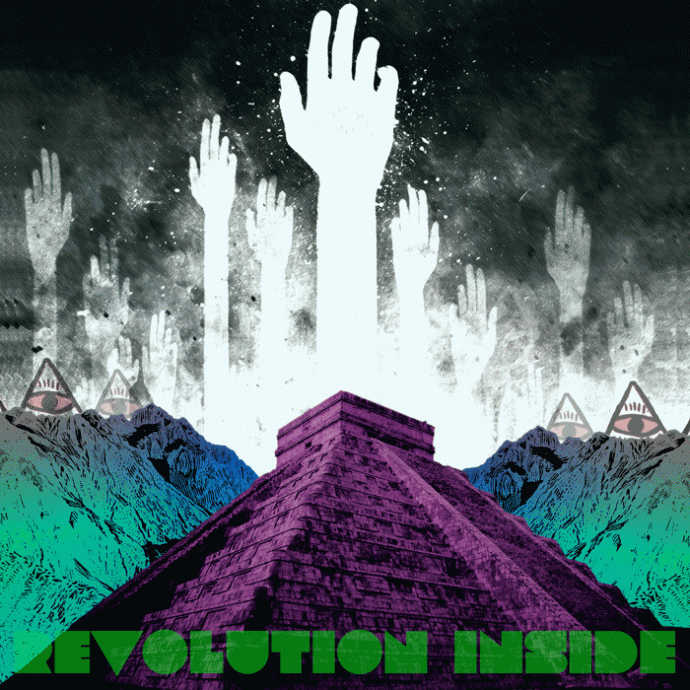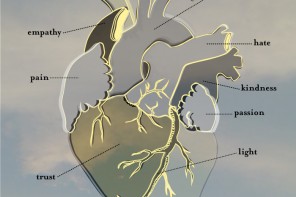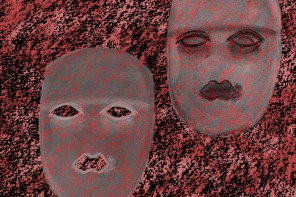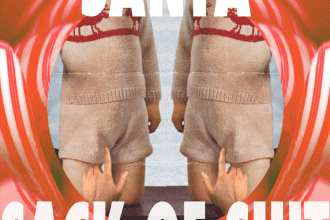We give the voice to a self proclaimed “techno hippy wigger” who reflects on his 2012 thoughts. He encapsulates the youthful voice of intellectual protest and gives way to an inverted reality of modern contradiction and claims that he’s literally alienated, to the point were he’s more alien than man.
“I share the belief of many of my contemporaries that the spiritual crisis pervading all spheres of Western industrial society can be remedied only by a change in our world view”
-Introduction to Albert Hoffman’s “My problem child”
“Life is not death
I am not I
I am you
We are all”
This is not one world. The world must indeed be upside down. Most people laugh at or fear the sheer idea of extraterrestrials when in fact that’s what we are deep in our DNA. Third world countries are rotten and first world countries are an example to follow: cool then why haven’t we nuked one another out already? It’s all the game of who’s got the biggest cock, the biggest atomic missile. Upside-down, unfair and real square: banks steal your money, politicians are having a ball at war and saving the economy, doctors and medicine do more harm than good, and universities get you into debt and long-term freelance unemployment. Father Christmas doesn’t give presents; instead you buy presents from him. More often than not citizens appear to be primitive and jungle people rather wise. “Drugs” are bad but alcohol and cigarettes are fine. Education bores people and entertainment educates them. Money and sex are more important than love and friendship. Most people are really fucking confused, hurt and even lost but they all know they’ve had enough of it. To revive an old cliché: one cannot be at peace knowing the children in Africa are dying –unless one is a willfully blind egoistical cunt, of course.
You don’t need to have a Ph.D. in Politics in order to feel what’s wrong in the Middle East, particularly with the never-ending dilly-dallying of the U.S. and Israel over the only two-state solution with Palestine. And by the way, what the devil is Larry Summers still doing in office and why Obama didn’t appoint Patrick Fitzgerald to scare the shit out of the bankers? Can someone au-fait enough explain in layman’s words why? I don’t think so. The term ‘inside job’ should be familiar to you already. The true survival of the fittest has nothing to do with physical endurance, alpha male leadership attributes or even senseless accumulations of capital and knowledge. Instead, it is the right type of knowledge what will get you out of our dark age of deception. Yet we live in an apartheid of knowledge. We have in large part shit funneled through our 6 senses incessantly. Too much info and bad info so if it doesn’t feel right, it’s whack.
Part of this upside-down-world scheme is designed to belittle cultures of ‘developing countries’ and uphold the dominance of the ‘developed countries’. It is a cultural, linguistic, ideological, political, financial, religious, military and historical battle: The golden apple. Furthermore, in academia it seeks to ridicule and shun any scientist with spiritual views on his research subject. Wilhelm Reich was one ill-fated case and, more recently, Rupert Sheldrake was denied participation by Richard Dawkins in the BBC documentary “The Enemies of Reason” due to his controversial research on telepathy. As a result, books such as Castaneda’s The Teachings of Don Juan only enter the literary cannon of the collective consciousness as borderline phantasy literature. There is, as it were, a hypocritical, badly covered up war on drugs. A clear example is the scientist Francis Crick, the man who earned a Nobel Prize for co-discovering the molecular structure of DNA (whilst on LSD). And if that doesn’t prove the point enough then consider how technology and design have been permeated throughout societies thanks to the squeaky-clean third eye of the billion-dollar hippy Steve Jobs. History is seriously twisted. Bill….please don’t get me started with the Beatles…
I’m not thoroughly pro-drugs either, please don’t get me wrong, but as my friend synchronically thought with me the other night: “in the Western world we constantly need drugs because life is so monotonously boring and empty of meaning to the point of depression; we need them to steam off the stress and paranoia.” It’s as if we didn’t have anything truly to live for. We are out of tune with the underlying frequency of the universe: love. We’re more into power. We’re unshackled slaves with broadband but disconnected from our nature. We have heating and electricity, basic literacy, just about enough nutrients & friends, reduced political and spiritual awareness, pre-selected music tastes, historical & family tree amnesia, the illusion of wealth, and the illusion of a life. This is the problem between the Andean philosophy Sumaj Qamaña (‘to live well’) and ‘to live better’, based on the Western notion of competition and gain in detriment of the other. Fernando Huanacuni, an Aymara activist, explains: “All the statistics and yardsticks of first, second and third world countries are catalogued in the context of economics, and nobody or very few have considered the concept of happiness, for example. For the modern world, the material and the economic are more important and feelings move to the background or disappear. To live well, to be in peace, to be happy does not have a price because it is not quantified and therefore does not have a price in the market”. For all the rest there may well be a blood-sucking Master Card. I think the moral here is that we need the drugs to feel real again, to loosen up and unblock the mind, to ‘chill out’ and recover our lost feelings, all those that are repressed by expected modes of behaviour, and just be ourselves.
In later years, however, there has been a growing awareness on the most potent hallucinogen in nature and its medicinal benefits: DMT and above all on its brewed form originally from the Amazon forest: Ayahuasca. This ‘drug’ has the potential of putting out of work swathes of psychiatrists and their ‘legal’ pharmaceutical dealers in the next half century. In turn, it also has the potential of helping real drug addicts and alcoholics give up their life-threatening habits, which would rid many rehab centers and put everything from drug lords, middlemen, to petty tourist dealers, out of business. Peter Cloudsley, who was good friends with the magic realist painter Pablo Amaringo and who runs his own Ayahuasca center in Peru endorsed this notion: “It is definitely a way of curing the illnesses of the West: namely depression and alienation”. He even mused about making urban ceremonies or bringing it to more European countries and the UK but was equally aware of the fearsome rejection it would initially face. Yet if I may highlight two important things about this ‘drug’: a) it’s hardly recreational, and b) one doesn’t feel intoxicated because it’s a continuous parallel reality one is tapping into for a few hours.
The mysterious thing about this drug is that, as Wade Davis from National Geographic wondered: “how in God’s name did the native Indians learn that the Ayahuasca vine had no effects unless combined with chacruna leaves when boiled?” To say “it’s like looking for two needles in a haystack” falls short of grasping the overall biodiversity and the organic chemistry expertise of these peoples of the Amazon. In other words: miracle or coincidence? Nothing is an accident as Burroughs said. Nonetheless, Davis provides one answer, which falls into Castaneda-territory: “they say the plants spoke to them and taught them which ingredients to choose”. At first I didn’t know what to make out of that hall of mirrors. It probably means they learned the Ayahuasca preparation process whilst under the influence of magic mushrooms, San Pedro, datura or the like. That alone strongly suggests that ‘hallucinations’ are not synonymous of illusions, and that nature can communicate on different levels in non-traditional, non-linguistic ways with you. How you liking that paradigm shift?
So, the good guys are in fact the bad guys and the bad guys are the good guys (without going into too deep generalizations). Interestingly, in some developing countries a series of measures have been taken to try to bring about more tangible CHANGE: the Pachakuti, which roughly means ‘the revolution of mother earth’ which focuses on degrowth and ecosocialism. Bolivia and Ecuador, two “axis” countries, are spearheading this movement. From the former, the DEA was already expelled as well as The Coca Cola Company. Also, some months ago two tons of unprocessed uranium was seized in a basement in downtown La Paz. Bolivia’s president Evo Morales believes that the 21st of December marks the end of capitalism. Note: I don’t fully sympathize with that president either.
To understand the ethos of the indigenous communities of the Andes we need to rewind a bit to pre-Columbian times. The runa (peasant) does not think philosophically, his cosmovision embodies already philosophy in his language and actions: he is the philosophical subject. Theirs was a philosophy of love (munay) and mutual help in the community (ayni) therefore the Tawantinsuyu of the Incas also never was an empire, because the word empire is ethnocentric and entails slavery, a military and gender inequality, all of which were inexistent. Moreover, the people of the Andes did not think in terms of dualisms but their thought processes permitted them a trivalent logic, which means things aren’t just good or bad but can be both. The Aymara and Quechua think somewhat like the ancient Greek, in that the past is in front of them because they can see it, they have lived it and the future is behind them because they cannot see it. Nayra means eye but it also means the past. Qhipa means one’s back but also means future. Furthermore, for those timespace-to-spacetime fans: pacha means at once three things: earth, time and space. For them cogito is not ergo sum. ‘Two minds think better than one’ is an often contradicted maxim in the West, but for them it’s celebramus ergo sumus. Whilst we are still sort of stuck with Sartre’s L’enfer c’est les autres –which perfectly made sense for a good while as it reflected the mood of an era in some parts of the world—the people of the Andes’ thinking is: “there are no dualities, only complementary polarities”, in other words good and evil become absorbed by love. When Francisco Pizarro met the Incas, the Incas not only took them for prophetic god-like creatures returning but their philosophy was so non-confrontational that it took them a while to bring themselves to kick up an uprising.
There is a hypothesis, which postulates that the traces of the most ancient civilization we know on our earth were not the Egyptian nor the Sumerian but the Tiwanaku culture, dating between 10,000 to 18,000 years old and whose ruins the Incas later discovered and began to worship. In recent times, ‘pseudoarchaeologist’ Graham Hancock has pushed this forward by using Arturo Posnansky’s calculations of the site in relation to the stars despite the problems presented by procession and the displacement of stones. Even the programme Ancient Aliens had a very hyped-up couple of series on the temple of Puma Punku at the site. But despite Hancock being a best-selling author, neither mainstream archaeology nor alternative archaeology has managed to formulate a consensus on humanity’s history. We are definitely a species with amnesia and we’ve all got different interpretations of who we are and where we come from. To this date, historians differ on the percentage; but only between 3.5% and 10% of Tiwanaku has been discovered. Why is there so little investment there? Indeed most of the money today is sitting there statically in a Caiman island account or goes into bailouts (rip offs) than into helping poverty or unearthing our lost roots.
Some years ago two objects appeared which would throw up a whole new set of questions but at the same time provided two vital corners of the puzzle of the history of mankind. At least we’re getting close to having a framework now. The Pokotia monolith and the Magna Bowl unearthed near Tiwanaku have cuneiform, proto-Sumerian engravings. There is even some popular literature on Kindle in Amazon that suggests that the Aymara language, which predates Quechua, is the language that descends from the Atlantis or even the Annunaki. In the 1990s on the other side of the Atlantic we have mummies’ analyses appearing with cocaine and nicotine in them. But coca is the sacred leaf of the Andes and that’s whence it comes from. The yatiris (wise men) have long used them to divine the future and make ritual offerings to pachamama. The miners, peasants and drivers chew it to feel stronger and to elude hunger. A holy leaf turned into No.1 drink and ego-boosting powder for business, under the table, as usual. But of course, your shifted minds understand all this as make-believe. Suckers of Satan’s cock, each and every one who doesn’t watch Ancient Aliens and instead is jacking up some America’s Got Talent!
It is interesting to see that, despite the World Wide Web supposedly connects us all, the predisposition to believe in the mysteries behind the 21st of December 2012 has gained more ground in Central and South America. Places and people who are not familiar with the ideas of a NWO, UFOs, etc and who traditionally have a much stronger catholic or conservative upbringing, yet they are geographically closer to the mysteries and have always had an immense distrust toward the United States, especially due to the many dictatorships throughout the second half of the twentieth century, which were arguably masterminded and funded by the C.I.A. El Secreto de Adán (The Secret of Adam) is one of the books which has tried to raise awareness in this area of interest for Spanish-speaking people. The author recounts from his tour in Mexico D.F.: “here even the waiter and the taxi driver are talking about 2012”.
I like the saying don’t put all your eggs in one basket or maybe a Spanish one is more befitting in this instance: “don’t crack a smile before you see the clown”. In other words, apart from what the reincarnation of Casey claims or what the indigo children say, I think we might be underestimating or overestimating the outcome. We just cannot foresee or foretell anything concretely. We can just speculate on the basis of disputed truths and incomplete narratives. So, if we want to be good conspiracy students I suggest we just get some extra candles and groceries and sit back and relax. Thinking is the mind’s business and we need its voice to shut up and stop trying to figure everything out all the time. We need instead consciousness in its purest form, unmediated by language. Language is ‘the virus from outer space’ as Burroughs held. Instead man thinks in images. E.T. can read between words. At best you may not take things for granted and start atoning your wrongdoings, since a quiet conscience can sleep in thunder. Last but not least, I wouldn’t mind a pole shift since the world is that upside-down. It might, in fact, help rewrite the rules of the game of life or aid us in a fairer fresh start by reordering values. We should play more and work less, draw more and write less, think less and do more. If there is one end we can be absolutely certain of right now then that’s the end-of-the-world hype in itself. It does feel like a ‘faith bet’ in a way, the crazy versus the genius, the mainstream versus the underground, capitalists vs. hippies, hipsters vs. bohemians and squatters, whatever, and nobody really enjoys losing nor should their be a single winner. So let’s just wait and see what happens with out hearts and minds wide open and I can stop right here and right now rather than try to publish ourselves out of this mundane mortality.







